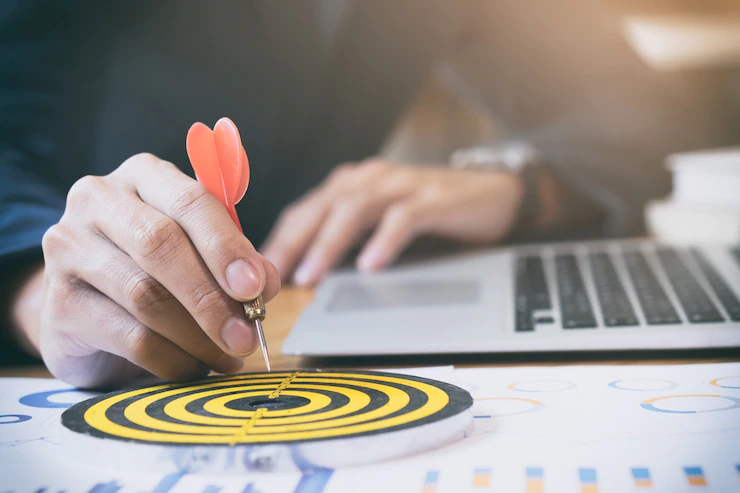Date
An artist, a working professional, a pupil or a sportswoman, irrespective of your field of moxie, your performance and capability to learn new effects will eventually depend on your capability to concentrate.
Irrespective of the gift and moxie, life throws in surprises and for this set of people, the biggest challenge could be losing focus. There are times when the capability to concentrate is affected and it may last for a many days, weeks or indeed months. The endless demands of our time and stresses tell on our attention power. This takes a risk on overall performance and, in turn, affects our sense of well- being.
numerous people struggle with fastening and there are different reasons for it. It could be frazzle, apathy, objectiveness, anxiety, stress among others. The lack of focus generally originates from a scattered and restless mind.
Focus is an inbuilt natural function. It’s possible to enhance it naturally simply by relaxing the mind. While you may have particular choices to relax your mind, it may or may not inescapably sustain focus. To sustain focus, it’s imperative to relax the mind through contemplation. This simple practice has numerous benefits, and its by- products include bettered attention, enhanced memory, and clarity among others.
Why meditate to improve focus?
Several studies have shown that regular practice of contemplation can help increase and sustain attention span. It helps to relax the mind enabling you to stay in the present. A study by the University of Wisconsin- Madison shows that those actors who rehearsed contemplation were better at completing tasks when faced with distraction. We frequently hear that contemplation requires attention. But, Gurudev Sri Sri Ravi Shankar counters, “ Contemplation isde-concentration. Alertness and focus of mind are the results of regular contemplation practice. ”
Now, along with contemplation, it helps to incorporate some practices that will help boost your attention powers.
Tips to consolidate contemplation & perfecting focus
Observing the breath
Breath is the main source of prana, the vital life- force energy. By simply getting apprehensive of your breath, you can witness a state of calm. A simple tip would be to start with choosing a quiet spot for yourself. The alternate step is to keep gentle attention on the natural meter of your breath for a couple of twinkles. The third step is to meditate. You can begin with any of these guided contemplations to witness the state of stillness and calm mind.
Pranayamas
The main aspect of pranayamas is inhalation, retention, and exhalation. To boost your short and long- term energy situations, pranayamas are the way to go. Exercise Nadi Shodhan pranayama( alternate nostril breathing) for a many twinkles before you begin to meditate. It helps to keep the mind happy, centered, and peaceful.
Sudarshan Kriya
Sudarshan Kriya incorporates specific natural measures of the breath, which harmonizes the body, mind, and feelings. This important yet, simple breathing fashion helps exclude stress, leaving the mind calm and concentrated. Research has backed that Sudarshan Kriya interpreters have better impunity, increased stamina, and sustained high- energy situations.
Concentration pranayama
This two- and-a-half-minute fashion can help retain and improve attention for three hours. Taught at The Art of Living’s especially- designed programs for kiddies and teens, the attention pranayama is largely effective in reducing distractions and perfecting attention.
Other tips to improve focus
- Physical exertion/ yoga
Physical exertion is essential as it helps the mind to be peaceful. rehearsing Sun Salutations( Surya Namaskars) or any set of yoga asanas at a slow pace. Flash back to pay attention to every movement and stretch as you sync them with your breath. It’s said just 20 twinkles of yoga stimulates the brain functions which are associated with the capability to concentrate. So, yoga is one of the natural ways to improve focus.
- Eat healthy
It’s said you’re what you eat. The food you eat affects not just the body, but also the mind, studies, intellect, and mindfulness. A brain-healthy diet is essential to keep your memory and intellect sharp, and your mood buoyant. It’s better to keep a check on your junk food quotient. numerous experts recommend abstaining from non-vegetarian food as well.
- Be in the now
This is a crucial practice in perfecting focus. To have focus is to be in the now, the present moment. The moment you come apprehensive that the mind has erred, bring it back to the present moment using your breath. Make this awareness a way of life.
Focus can have far-reaching prices in numerous areas of diurnal life. It’s worthwhile to invest some time and trouble in stropping it. So, when was the last time you proactively tried to improve your focus? Take the step to work towards the difference you want to see in yourself moment.
More
articles
Curiosity is a helpful tool for engaging with our embodied experience, including feelings like sadness, anxiety, or any other unpleasant emotion. Explore this simple exercise to help you shift your station toward what you’re feeling.
Over the times, as I’ve studied how habits work in the brain and ways in which awareness can help, I’ve set up that curiosity is a simple tool that can help us, anyhow of language, culture and background. It can help us drop directly into our embodied experience. Curiosity helps us valve into our natural capacity for wonder and interest, putting us right in that sweet spot of openness and engagement, indeed with delicate feelings. From this state of mind, we’re more empowered to help ourselves break out of these old habit circles and make new habits of kindness and curiosity.
A awareness Practice to probe Tough feelings
- Find a quiet, comfortable place. You can be sitting, lying down or indeed standing up. You just need to be suitable to concentrate without being detracted.
- Recall a recent time when you endured a delicate emotion. You might indeed be feeling it right now. It could be anxiety. It could be feeling down or sad. See if you can flash back the scene, perhaps indeed relive the experience, fastening on what you felt right at that time.
- Check in with your body. What sensations can you feel most explosively right now? Is it miserliness, pressure, compression? Restlessness or burning? Pressure, clinging, or heat? perhaps a hole in your stomach or a buzzing or vibration? Simply feel it and get curious. What’s utmost predominant right now?
- Notice where the sensation is in your body. Is it more on the right side or the left side? Is it more in the front, the middle, or the reverse of your body? Where do you feel it most explosively?
- Explore what differently you can feel in your body right now. However, see if you can get curious and notice what differently is there as well, If the sensation is still there. Are there other sensations you ’re feeling? What happens when you get curious about those? Do they change? What happens when you really get curious about what they feel like?
- Simply follow this procedure over the coming couple of twinkles. See what’s most predominant in your experience. What are the sensations? Don’t try to do anything about them. Simply observe them. Do they change when you observe them? What happens when you bring a really solid station of curiosity?
- It’s frequently helpful to check in with your station, to see if you’re truly being curious or trying to be curious. I find it helpful to simply check to see if my mind is going hmm. What’s passing in my body right now? as compared to trying to force myself to be curious. So whether it’s out loud or just an inner hmm, you can check from time to time to see if your mind is truly being curious or if it’s trying to be curious or allowing too much.
- Still, you can simply get curious about that, If you notice that you’re trying or you’re thinking. Hmm. There’s a study. Hmm. What does trying feel like in my body? Just continue this noticing for the coming couple of twinkles. And as you practice, whatever the grueling emotion is, simply get curious. Where do I feel it? Do the sensations change over time? Where do I feel the most explosively in my body?


